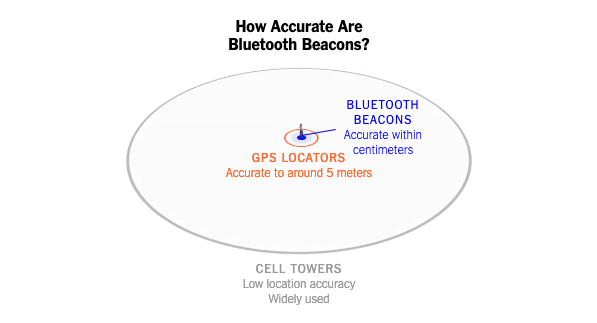Bluetooth and Its Mutation Into a Surveillance Tool

The almighty Facebook corporation has announced its entrance into the dating industry using bluetooth, facilitating the social network with yet another facet of user-generated data. In the past, this repurposing of the Bluetooth technology as an actor within the data harvesting industry has not only caught the eye of Mark Zuckerberg’s social network but to a range of other players as well. As a consequence, the varying sorts of involved users might possibly become even more fragile in terms of digital privacy and their corresponding data footprint. In this post I want to dive into this specific development surrounding the Bluetooth repurposing into a tracking technology with respect to the ever relevant debate on surveillance, control and user privacy.
A noteworthy finding
After the recent wave of big industry players acknowledging and acting on problems around the intensity of people’s media usage by implementing features for their users to limit their own digital activity, a new phase of reconciling with some of the industry’s contemporary sociological issues by the players themselves has seemed to commence. In this case, Apple’s latest IOS 13 firmware foregrounds privacy pop-ups as a result from the operating system recognizing third party background activity. The feature’s purpose lies in giving the user back some of its control over digital surveillance and affords the user to allow or block the concerned activity, thereby building on the seemingly supportive trend of tech giants facilitating its users with new tools to reshape their privacy.
As Apple introduced IOS13 to release on September 19th this year, the feature quickly left a significant impression by notifying users with some of Facebook’s peculiar background activity (Lomas). In this case, the social network requested the devices’ Bluetooth technology to be activated. Allowing this makes tracking the user’s physical location possible with a rather precise calculation and affords the matching with other Bluetooth ID’s nearby. All the while it differs per operating system and the device’s settings, the intensifying use of wireless Bluetooth accessories in recent years has propelled the size of the audience to be captured without consent and has to be considered (Hern, Yanofsky). Facebook’s unconventional request was quickly linked to their upcoming dating app, triggering quite the concerns as Facebook has been plagued by privacy scandals in the last years. (Cuthbertson).
An established tool off its course
Importantly, it must be noted that Bluetooth was never purposed to be used as a technology that “keeps track of significant changes in a tracked entity’s state” as Agre neatly formulated as the definition of tracking, at least not on this scale (742). But for some years now, Bluetooth has been an actor used for similar proximity tracking by means of beacons. Physical locations like stores, airports, you name it, track consumers’ past aisle-routes and purchases to anticipate on future behavior (Kwet). Matching the afore mentioned ID’s between these beacons and the unsuspecting customers’ device with a locating accuracy up to only a couple of inches therefore made for yet another twist in the ad tech giants’ examination of surveillance capitalism (Zuboff).

After having Zuckerberg introduce Facebook’s own Bluetooth Beacon in 2015, the company now dares to turn consumers’ handheld devices into an unsolicited form of Bluetooth beacons themselves. The interesting yet looming aspect of this development is how the agency of Bluetooth as an actor has surprisingly “modified the state of affairs”, as Latour would put it, when it comes to the practice of data harvesting as the repurposing enforces a more unconventional way of tracking physical sites and movement instead of their digital counterparts (71). With Facebook entering the dating industry we have to accept that the technology will mainly be of use for the company to capture and process your data under the pseudonym of matching you with another user. With respect to write-ups like the one you’re reading right now and other deeper research, you would think people might actually start to care more about their data being captured in yet another way and thus adapt their conduct (Agre, 748). The future is, of course, uncertain, but facts state that Facebook’s daily active users has risen to 1.59 billion in 2019, which translates to an 8 percent rise compared with 2018 (Noyes). All the while past years have seen us criticizing Facebook’s policies and being shocked by the several scandalous Facebook data leaks, in the end it does not look like we actually care (Cadwalladr & Graham-Harrison).
Further Facebook mingling
Facebook being this assemblage according to Bucher, will now not only program sociality through friendship but also through affection by focussing on and linking the cultural expressions within the platform they think will sharpen their matching accuracy (481). This makes for a mutation from Bucher’s ‘algorithmic friendship’ to what I would call ‘algorithmic affection’, characterizing yet another instance of Facebook’s mingling into its user’s lives.
Ironically, Apple created the first Bluetooth system of commercial surveillance but now consciously warns its iPhone users for such practices which will possibly add millions more to the amount of people already being tracked by the “beacosystem” (Kwet). In “A New Algorithmic Identity” Cheney-Lippold states how we are losing control and ownership over the shaping of our identities as a result of surveillance and the corresponding data retrieval, a notion that is reinforced with this newest addition to Facebook’s data empire (178).
It is clear that we will have to continue to identify how these practices will keep adding to the complexity and commodification of our digital profiles and how already invested actors like Bluetooth could mutate into the unexpected. Furthermore, looking forward, we should prepare ourselves for possible further integration of tracking technologies as the global integration of “Smart Cities” rises (Williams). Chances are, that a huge part of civilization will not be able to evade tracking from both digital and physical sites at all in the near future. Thoughts like these suggest broader study and will have to be articulated by scholars derived from different fields of study.
References
- Agre, Philip E. “Surveillance and capture: Two models of privacy.” The Information Society 10.2 (1994): 101-127. Web.
- Bucher, Taina. “The Friendship Assemblage: Investigating Programmed Sociality on Facebook.” Television & New Media 14.6 (2013): 479–493. Web.
- Cadwalladr, Carole, and Emma Graham-Harrison. “Facebook Accused of Conducting Mass Surveillance through Its Apps.” The Guardian, Guardian News and Media, 24 May 2018, https://www.theguardian.com/technology/2018/may/24/facebook-accused-of-conducting-mass-surveillance-through-its-apps.
- Cheney-Lippold, John. “A New Algorithmic Identity: Soft Biopolitics and the Modulation of Control.” Theory, Culture & Society 28.6 (2011): 164–181. Web.
- Cuthbertson, Anthony. “Facebook Dating App Reveals Secret Admirers among Your Friends.” The Independent, Independent Digital News and Media, 5 Sept. 2019, https://www.independent.co.uk/life-style/gadgets-and-tech/news/facebook-dating-app-download-secret-crush-feature-a9093491.html.
- Hern, Alex. “Facebook Users Cannot Avoid Location-Based Ads, Investigation Finds.” The Guardian, Guardian News and Media, 19 Dec. 2018, https://www.theguardian.com/technology/2018/dec/19/facebook-users-avoid-location-based-ads-settings-investigation-reveals.
- Kwet, Michael. “In Stores, Secret Bluetooth Surveillance Tracks Your Every Move.” The New York Times, The New York Times, 14 June 2019, https://www.nytimes.com/interactive/2019/06/14/opinion/bluetooth-wireless-tracking-privacy.html.
- Latour, Bruno. Reassembling the Social : an Introduction to Actor-Network-Theory. Oxford: Oxford University Press, 2005. Print.
- Lomas, Natasha. “Seven Reasons Not to Trust Facebook to Play Cupid.” TechCrunch, TechCrunch, 22 Sept. 2018, https://techcrunch.com/2018/09/22/seven-reasons-not-to-trust-facebook-to-play-cupid/.
- Lomas, Natasha. “Get Popcorn for IOS 13’s Privacy Pop-Ups of Creepy Facebook Data Grabs.” TechCrunch, TechCrunch, 16 Sept. 2019, https://techcrunch.com/2019/09/16/get-popcorn-for-ios-13s-privacy-pop-ups-of-creepy-facebook-data-grabs/.
- “Top 20 Facebook Statistics – Updated September 2019.” Zephoria Inc., 16 Sept. 2019, https://zephoria.com/top-15-valuable-facebook-statistics/.
- Williams, Timothy. “In High-Tech Cities, No More Potholes, but What About Privacy?” The New York Times, The New York Times, 1 Jan. 2019, https://www.nytimes.com/2019/01/01/us/kansas-city-smart-technology.html.
- Yanofsky, David. “Google Can Still Use Bluetooth to Track Your Android Phone When Bluetooth Is Turned Off.” Quartz, Quartz, 27 Jan. 2018, https://qz.com/1169760/phone-data/.
- Zuboff, Shoshana. “The Secrets of Surveillance Capitalism.” Frankfurter Allgemeine, Frankfurter Allgemeine, 5 March. 2016, https://www.faz.net/aktuell/feuilleton/debatten/the-digital-debate/shoshana-zuboff-secrets-of-surveillance-capitalism-14103616.html (excerpt from “Zuboff, Shoshana. The Age of Surveillance Capitalism : the Fight for the Future at the New Frontier of Power . London: Profile Books, 2019. Print.”)



